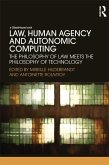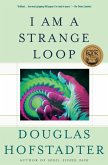The two volumes on Wittgenstein and AI aim to trace and suggest Wittgensteinian influences in some of the most cutting-edge areas of research in Artificial Intelligence (such as Computation, Machine Learning, Natural Language Processing and the use of automation in legal settings). The collection is driven by an essentially interdisciplinary approach, featuring articles from philosophers, computer scientists and legal scholars, writing on a broad range of topics in AI.
The chapters across these two volumes are grouped into two sets of themes: Mind and Language and Value and Governance. These themes correspond to two major areas of research in the philosophical study of AI: the computational mind and the ethics of artificial intelligence. These volumes make a significant and unprecedented contribution to the question of what Wittgenstein's philosophy can offer to the ever-growing field of AI. It aims to provide insight for both philosophers and non-philosophers alike, offering reflection on the significance of Wittgenstein's work for AI, and on the implications of advancements in AI technology for Wittgenstein's philosophy and philosophy influenced by Wittgenstein.
VOLUME I: Wittgenstein and AI (Volume I): Mind and Language. This volume includes chapters on Wittgenstein and Turing's views on AI, the question of whether machines can think, intentionality, AI language models, analogical reasoning and logic.
The chapters across these two volumes are grouped into two sets of themes: Mind and Language and Value and Governance. These themes correspond to two major areas of research in the philosophical study of AI: the computational mind and the ethics of artificial intelligence. These volumes make a significant and unprecedented contribution to the question of what Wittgenstein's philosophy can offer to the ever-growing field of AI. It aims to provide insight for both philosophers and non-philosophers alike, offering reflection on the significance of Wittgenstein's work for AI, and on the implications of advancements in AI technology for Wittgenstein's philosophy and philosophy influenced by Wittgenstein.
VOLUME I: Wittgenstein and AI (Volume I): Mind and Language. This volume includes chapters on Wittgenstein and Turing's views on AI, the question of whether machines can think, intentionality, AI language models, analogical reasoning and logic.
Dieser Download kann aus rechtlichen Gründen nur mit Rechnungsadresse in A, D ausgeliefert werden.









